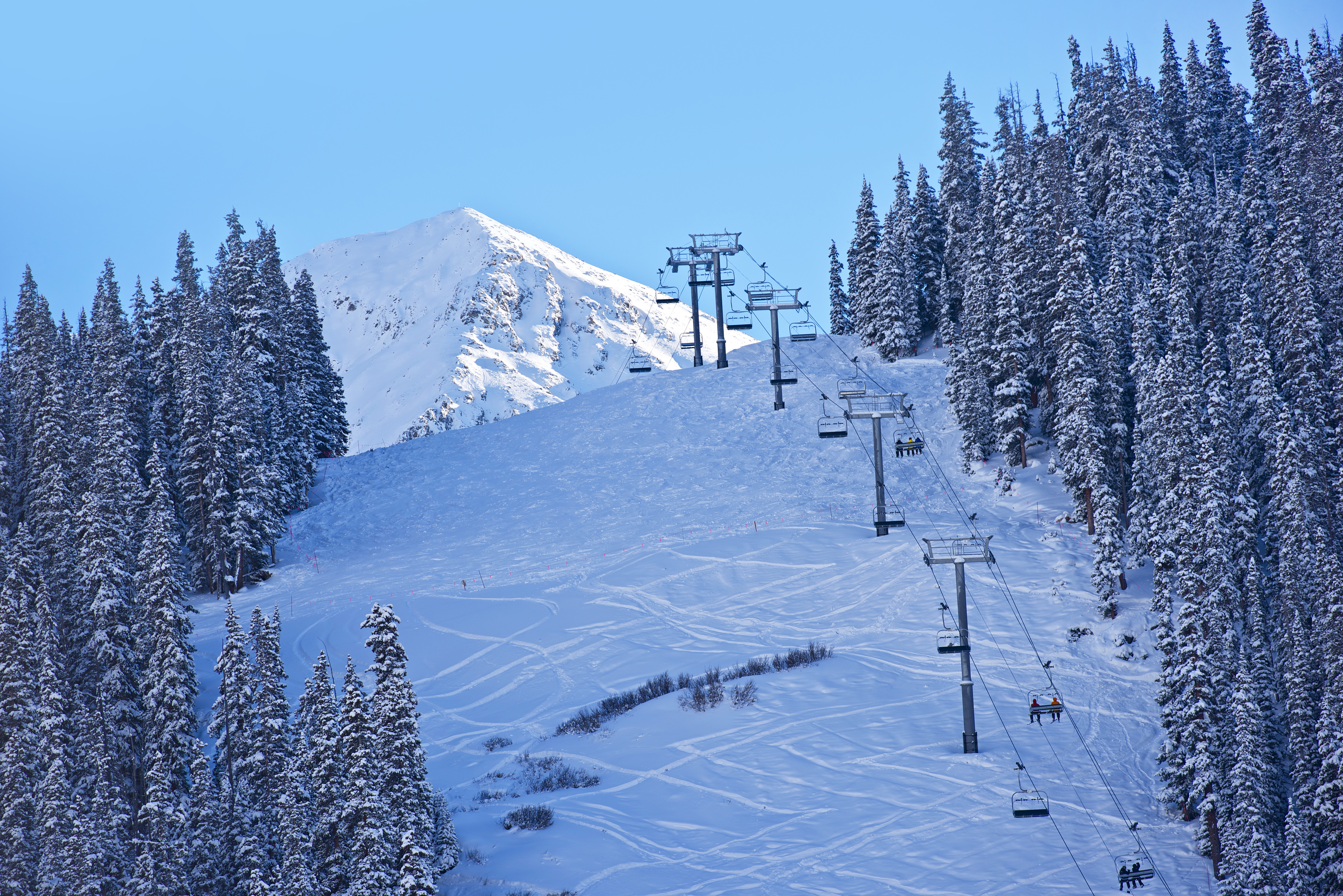04/11/24
Best of the West: Mental health urgent care facilities; Advanced reconductoring; A net-zero ski resort; Researching arctic security; and State-of-the-art mule deer monitoring

The Western Governors' Association keeps you updated on the latest news in the West. Here are the top stories for the week starting April 8, 2024. (Photos courtesy of Adobe Stock Images).
Mental-health urgent-care sites are proliferating across the U.S. to treat the growing numbers of people who need mental health care and ease a shortage of therapists that has caused many people to wait months for appointments or go to the nearest emergency room to find help.
Mental Health Partners, a community mental health center serving Boulder and Broomfield counties in Colorado for 60 years, recently launched UrgentPsych Mental Health and Substance Use Urgent Care. The walk-in program provides immediate, in-person support for urgent mental health and substance use needs for anyone, regardless of their ability to pay, and whether or not they are an existing client.
The Wisconsin Legislature recently approved an act that creates Crisis Urgent Care and Observation Centers designed to provide immediate service to those experiencing mental health and substance abuse crises.
Family Guidance Center's Behavioral Health Urgent Care center, in St. Joseph Missouri, just over the border from Kansas, has been open to patients for a year now and has served more than 1,300 patients. On average, an estimate of more than $1 million in hospital costs has been saved from residents not having to go to the emergency room and going to the urgent care facility instead.
 Semiconductors: The U.S. government plans to give $6.6 billion to Taiwan Semiconductor Manufacturing Co., the world’s biggest manufacturer of semiconductor chips, to help it build three factories in Arizona as part of nationwide efforts to secure the supply of advanced chips.
Semiconductors: The U.S. government plans to give $6.6 billion to Taiwan Semiconductor Manufacturing Co., the world’s biggest manufacturer of semiconductor chips, to help it build three factories in Arizona as part of nationwide efforts to secure the supply of advanced chips.
“These are the chips that underpin all artificial intelligence, and they are the chips that are the necessary components for the technologies that we need to underpin our economy,” Secretary of Commerce Gina Raimondo said, adding that they were vital to the “21st century military and national security apparatus.”
In order to spur similar projects throughout the region, Western Governors recently corresponded with Congressional leadership to express their support for measures in the bipartisan and bicameral Building Chips in America Act that would streamline the environmental review process for projects receiving funding under the CHIPS and Science Act of 2022 and encouraged Congress to work on comprehensive permitting reforms that increase transparency, accessibility, and agency accountability for all projects.
Register here to watch a livestream of the Western Prosperity Forum on April 23-24, which will include a discussion with experts from the Arizona Office of Economic Opportunity, Intel, and Deloitte about how to develop a workforce that can meet the current and future demands of the semiconductor manufacturing industry.
Advanced Reconductoring: A series of studies, the newest released this week by the University of California, Berkeley and GridLab, explored the potential for replacing existing power lines with cables containing lighter cores made from carbon fiber that can hold more aluminum. According to the study, this technique, known as “advanced reconductoring,” could roughly double the capacity of the electric grid in many parts of the country, making room for much more wind and solar power without having to go through the lengthy process of developing new transmission lines. In 2011, AEP, a utility in Texas, urgently needed to deliver more power to the Lower Rio Grande Valley to meet soaring population growth. AEP replaced 240 miles of wires on an existing line with advanced conductors, which took less than three years and increased the carrying capacity of the lines by 40%.
 Net-zero Ski Resort: Arapahoe Basin in Colorado recently reached its goal of operating on a net-zero carbon footprint before 2025 — a goal originally set in 2018. The ski area created a six-step plan in 2018 to reach this goal. The steps ranged from waste diversion to improved transportation efficiency, and, in 2023, a switch to 100% renewable energy for all of its operations, including all of the resort's buildings, lifts, and snowmaking activities. The final step was reducing its Scope 1 direct greenhouse gas emissions and offsetting them with tangible carbon reduction projects.
Net-zero Ski Resort: Arapahoe Basin in Colorado recently reached its goal of operating on a net-zero carbon footprint before 2025 — a goal originally set in 2018. The ski area created a six-step plan in 2018 to reach this goal. The steps ranged from waste diversion to improved transportation efficiency, and, in 2023, a switch to 100% renewable energy for all of its operations, including all of the resort's buildings, lifts, and snowmaking activities. The final step was reducing its Scope 1 direct greenhouse gas emissions and offsetting them with tangible carbon reduction projects.
Learn more about decarbonization strategies by watching WGA’s workshop series as part of Wyoming Governor Mark Gordon’s WGA Chair Initiative, Decarbonizing the West.
Arctic Security: The unprecedented loss of sea ice is creating challenges for Arctic communities, but also opening up new shipping lanes and opportunities for Arctic tourism. In response, The Department of Homeland Security (DHS) recently selected the University of Alaska Anchorage to house a new research facility focused on Arctic security known as The Arctic Domain Awareness Center. Once operational, it will be the newest of nine Homeland Security “Centers of Excellence” at universities across the country.
“What does coastal erosion mean if the sea ice is no longer there? What happens when the tourists' boats are coming and landing here and there? What happens when fishing boats or commerce goes from Asia to Europe?” DHS Under Secretary for Science and Technology Dmitri Kusnezov said. “All of these problems are real, and we have to start thinking about it.”
Mule Deer Monitoring: A “state of the art” program monitoring five mule deer herds has begun to provide wildlife managers at the Wyoming Game and Fish Department (WGFD) and the University of Wyoming with critical information that allows scientists to monitor the deer’s movement patterns, identify seasonal ranges, help them understand drivers of herd performance and the effectiveness of habitat treatments.
“With this data, Game and Fish will be able to see where deer go and where they stay, what habitat they use and where they avoid, giving biologists the opportunity to dig into the why,” said Embere Hall, WGFD Wildlife Division supervisor of science, research, and analytical support. “We have seen incredible amounts of movement across some of our herds.”